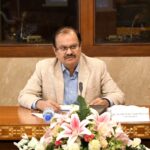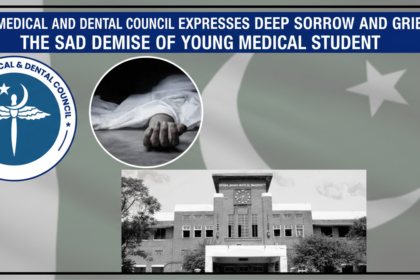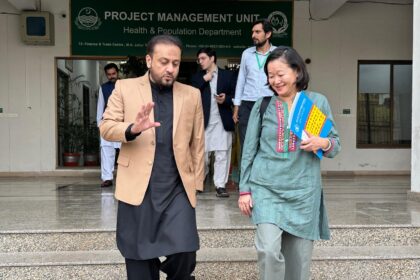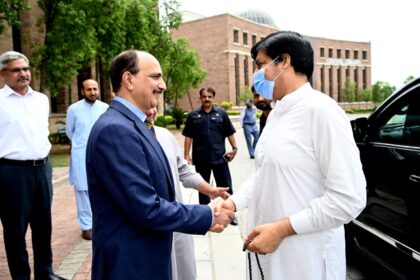Novo Nordisk Pakistan GM Urges Bold Partnerships and Social Responsibility in Fight Against Obesity
Nadeem Tanoli
Rashid Rafiq Butt, General Manager of Novo Nordisk Pakistan, delivered an impassioned speech on the importance of education, innovation, and multi-sector collaboration to address Pakistan’s growing burden of obesity and non-communicable diseases. Speaking at a national dialogue hosted by Novo Nordisk, Butt emphasized that defeating chronic diseases like diabetes and obesity requires not only cutting-edge medicines but also courage, communication, and compassion.
Opening his remarks with humility, Butt challenged the assumption that only uneducated individuals are unaware of health risks. “Many educated people, including myself, are also unaware of the quality of life we are living,” he said, calling for widespread education even among the literate. He added that parents bear a responsibility to create healthier future generations by adopting better lifestyles today.
He reflected on how Novo Nordisk’s journey over the past century has evolved—from pioneering diabetes care to leading global efforts in obesity management. Butt stressed that ordinary approaches are no longer sufficient. “We must now think out of the box,” he said, referencing the theme of the event: Unordinary Partnerships to Shape a Healthier Tomorrow.
Butt acknowledged the ongoing economic and political challenges facing multinationals in Pakistan, with many having exited the market. Despite these headwinds, he asserted Novo Nordisk’s commitment to stay in Pakistan, not only to provide world-class medicines but also to contribute to public awareness and prevention efforts. “This country is our motherland. It has given us a lot, and it’s time to give back,” he declared.
Highlighting Novo Nordisk’s social responsibility, he shared that despite inflation and currency depreciation, the company continues to supply high-quality insulin—imported from Copenhagen—at affordable prices. “More than 80% of patients cannot afford to spend even 1000 rupees per month on insulin. Yet, we stand committed to making treatment accessible,” he said.
Butt then presented his vision of a healthier Pakistan, anchored on three pillars: government, healthcare professionals, and the pharmaceutical industry. He called on the government to fulfill its constitutional responsibility to protect public health, and urged doctors to go beyond treatment by focusing on prevention and early education. He also clarified that the pharmaceutical industry’s role should extend beyond product sales to long-term engagement in health promotion.
He praised the growing collaboration between Novo Nordisk and professional associations such as the Pakistan Society of Internal Medicine (PSIM), the Pakistan Endocrine Society, and the Pakistan Obesity Society. These partnerships, he said, are a model of how private and public players can unite to create large-scale, sustainable change in healthcare.
In a heartfelt conclusion, Butt addressed the role of media and public communication. “If we keep everything within these walls, nothing will change,” he warned. He criticized the trend of using social media primarily for negativity and urged the media to amplify health awareness campaigns. “Let’s use these platforms to educate and empower,” he said, reaffirming Novo Nordisk’s ongoing commitment to public engagement and social progress.












